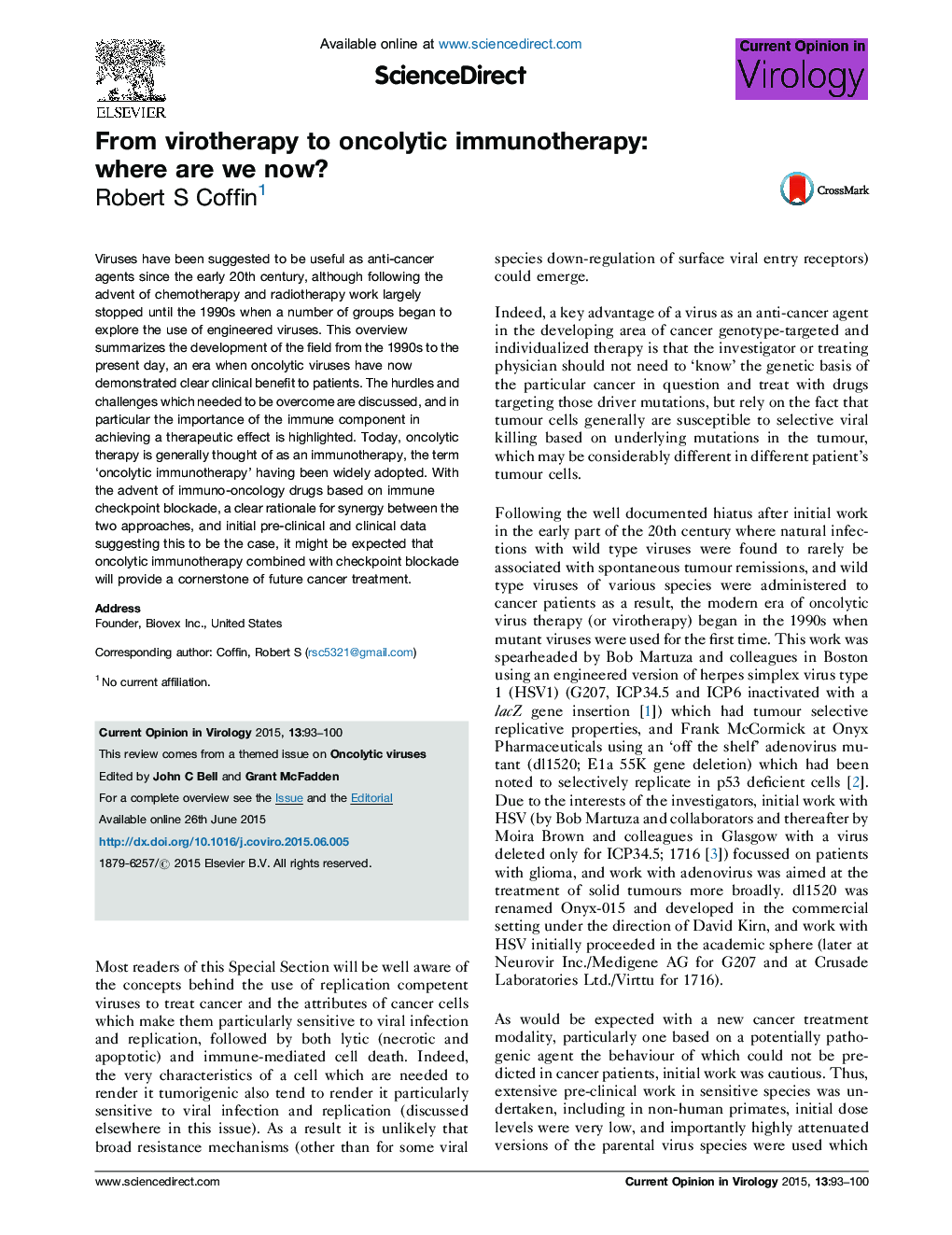| Article ID | Journal | Published Year | Pages | File Type |
|---|---|---|---|---|
| 2473284 | Current Opinion in Virology | 2015 | 8 Pages |
•Viruses have been suggested as anti-cancer agents since the early 20th century.•An overview of developments since the 1990s is provided.•The first successful phase 3 trial reported in 2014, with FDA approval expected in 2015.•Lytic viral therapy also induces a potent anti-tumour immune response.•Clinical trials in combination with immune checkpoint blockade are now underway, with initial promising data.
Viruses have been suggested to be useful as anti-cancer agents since the early 20th century, although following the advent of chemotherapy and radiotherapy work largely stopped until the 1990s when a number of groups began to explore the use of engineered viruses. This overview summarizes the development of the field from the 1990s to the present day, an era when oncolytic viruses have now demonstrated clear clinical benefit to patients. The hurdles and challenges which needed to be overcome are discussed, and in particular the importance of the immune component in achieving a therapeutic effect is highlighted. Today, oncolytic therapy is generally thought of as an immunotherapy, the term ‘oncolytic immunotherapy’ having been widely adopted. With the advent of immuno-oncology drugs based on immune checkpoint blockade, a clear rationale for synergy between the two approaches, and initial pre-clinical and clinical data suggesting this to be the case, it might be expected that oncolytic immunotherapy combined with checkpoint blockade will provide a cornerstone of future cancer treatment.
